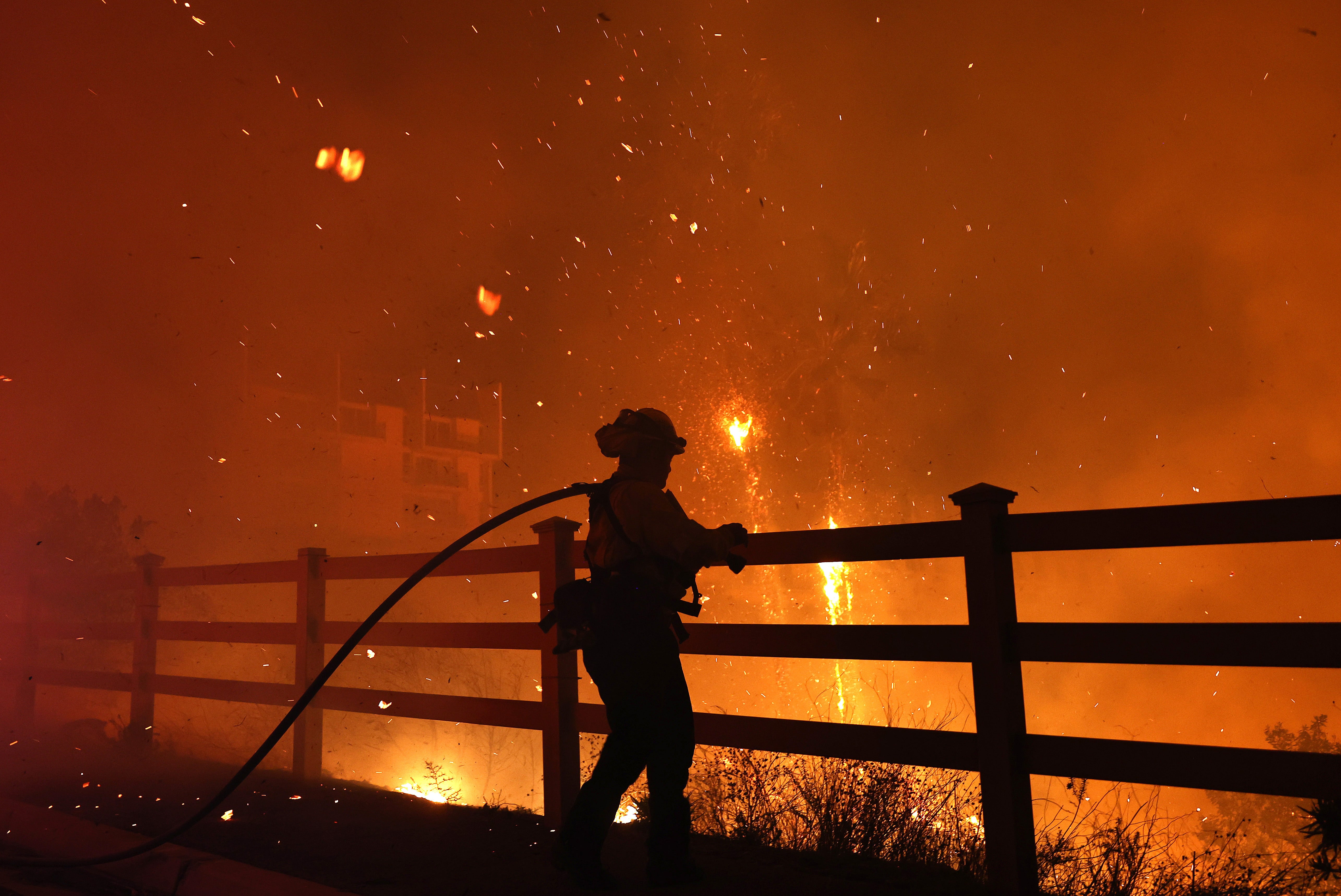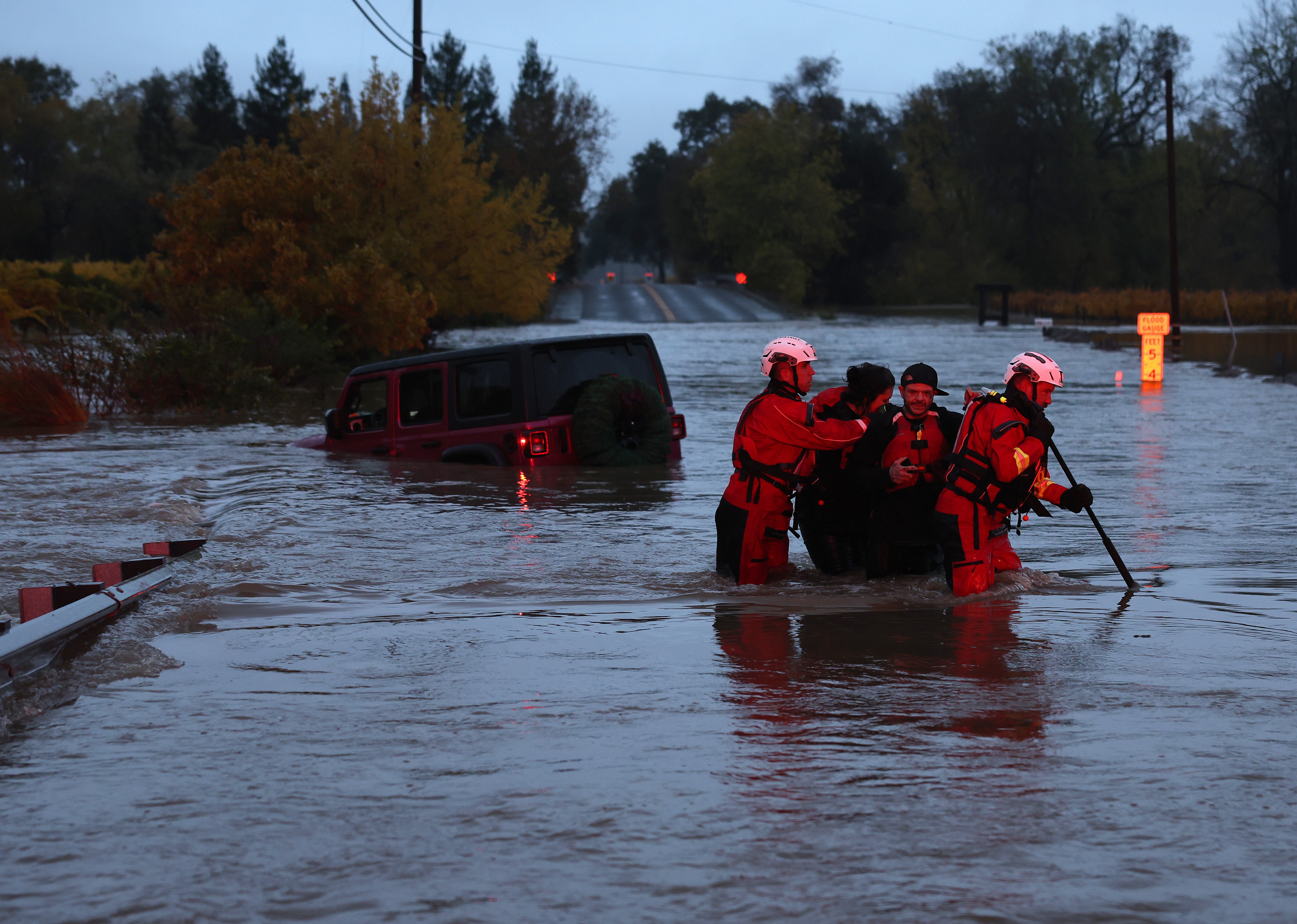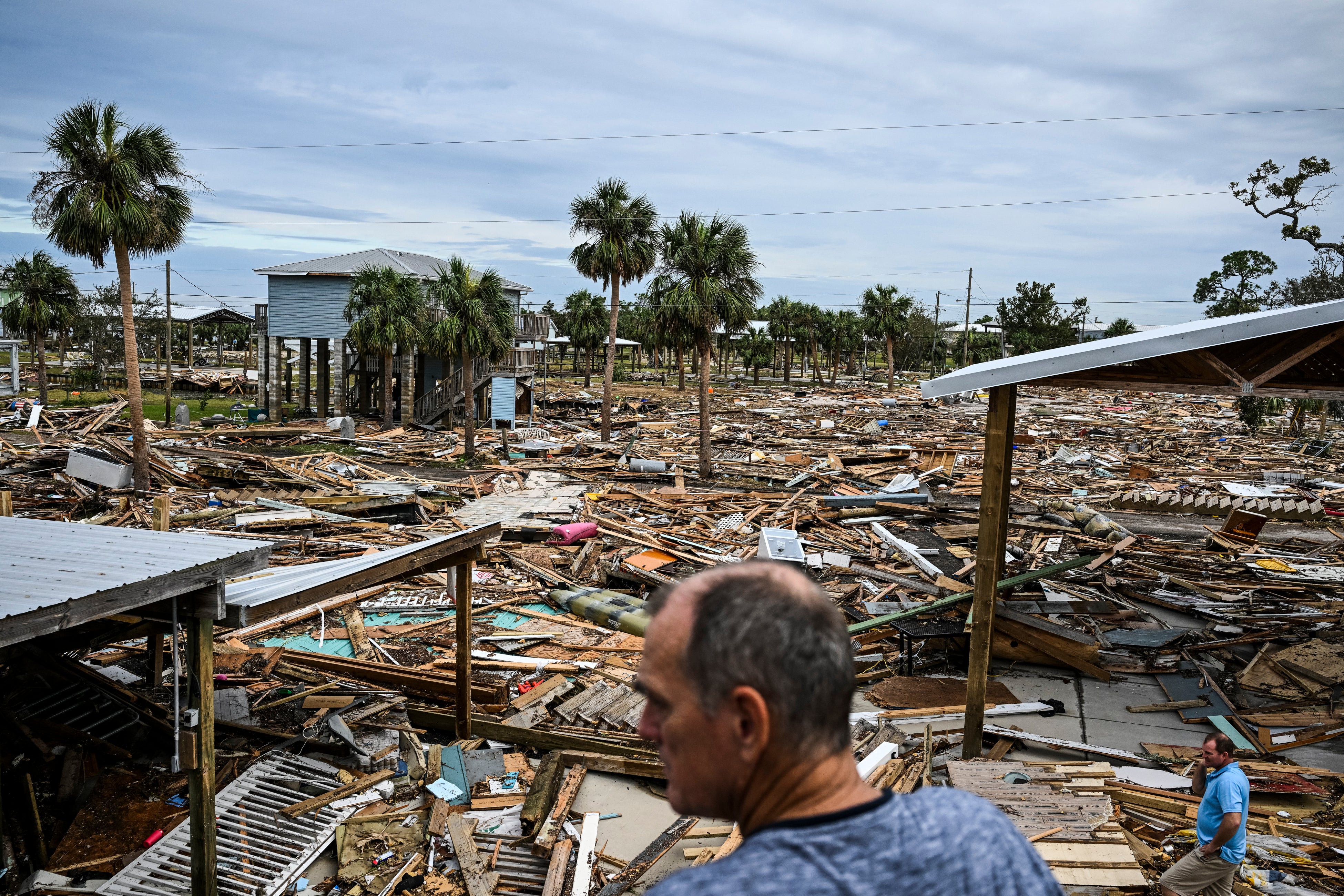Destructive hurricanes, sweltering heat waves: Extreme weather events cost Americans hundreds of billions of dollars this year
Climate change is making extreme weather events more frequent and severe with expensive and deadly consequences
Your support helps us to tell the story
From reproductive rights to climate change to Big Tech, The Independent is on the ground when the story is developing. Whether it's investigating the financials of Elon Musk's pro-Trump PAC or producing our latest documentary, 'The A Word', which shines a light on the American women fighting for reproductive rights, we know how important it is to parse out the facts from the messaging.
At such a critical moment in US history, we need reporters on the ground. Your donation allows us to keep sending journalists to speak to both sides of the story.
The Independent is trusted by Americans across the entire political spectrum. And unlike many other quality news outlets, we choose not to lock Americans out of our reporting and analysis with paywalls. We believe quality journalism should be available to everyone, paid for by those who can afford it.
Your support makes all the difference.Extreme weather events in 2024 will ultimately cost Americans more than $500 billion in total damage, according to a new estimate from AccuWeather.
That steep sum comes after a year filled with extreme weather events — which have become increasingly commonplace across the U.S. — that often had deadly consequences. Oppressive and dangerous heat waves rocked major metros this summer, in what is expected to be the hottest year on record. California saw its fourth-largest wildfire, torrential rains pounded the West Coast and Pacific Northwest over the winter, and more than 100 people were rescued in Arizona after flash floods left them stranded near the Grand Canyon.
Meanwhile, the Northeast experienced a historic period of dry weather and drought, leading to wildfires in New York City and New Jersey. And nearly back-to-back hurricanes brought incredible devastation to North Carolina and the Southeast, with impacts still being felt months later.
“We witnessed a historic year of extreme weather in America. Hurricanes, floods, damaging windstorms, large hail and tornadoes devastated communities across the country,” AccuWeather Chief Meteorologist Jonathan Porter said in a statement. “This was one of the most destructive and expensive hurricane seasons in modern history.”
“The impacts of extreme weather have taken a major financial and emotional toll on millions of Americans this year. Unfortunately, this is a trend that we expect to further escalate in the coming decades. More and more people, businesses and communities are feeling the direct impacts and harm from extreme weather and climate change.”

As of November 1, there were 24 confirmed weather and climate disaster events with losses exceeding $1 billion, including two winter storms, a wildfire, four tropical cyclones, and 17 severe storms. They resulted in the deaths of more than 400 people. Last year, the number of billion-dollar climate disasters was even higher, with 28 events reported. Damage from the 2023 disasters totaled $92.9 billion.

In response, home insurance companies have been pulling out of areas that are at risk of damage, like California and Florida.
As the world continues to warm with the increased production of greenhouse gas-emitting fossil fuels, temperatures will rise. To what level remains unclear, but any continued warming will come with climate consequences. Wildfires will become more frequent and intense. Hurricanes are faster and stronger.
“Our world is getting warmer as we continue to burn fossil fuels around the globe. Temperatures will continue to rise if we continue emitting tons of greenhouse gases that are trapped in our atmosphere,” AccuWeather Senior Meteorologist and Climate Expert Brett Anderson said. “Higher air temperatures and warmer oceans are providing additional energy and moisture for storms. Warmer air can also hold more moisture, leading to more extreme rainfall rates and destructive flash flooding, which we have seen this year.”

The financial impacts from this year alone will be felt for a long time, according to the media forecasting group. AccuWeather estimated that the total damage and economic loss from the tropical cyclones Beryl, Debby, Francine, Helene, Milton, and the unnamed subtropical storm in the Carolinas will surpass half a trillion dollars. Previously, AccuWeather had estimated that the storms that made landfall caused an estimated $500 billion in total damage and economic loss.
“The damage and economic loss from tornadoes, floods, hail, wildfires, and drought this year is mounting. The extreme weather of 2024 should be a further wake-up call for businesses, government leaders, emergency officials and the insurance industry to prepare for a future with more weather disasters, extreme temperatures, and unprecedented impacts,” said Porter.

Join our commenting forum
Join thought-provoking conversations, follow other Independent readers and see their replies
Comments